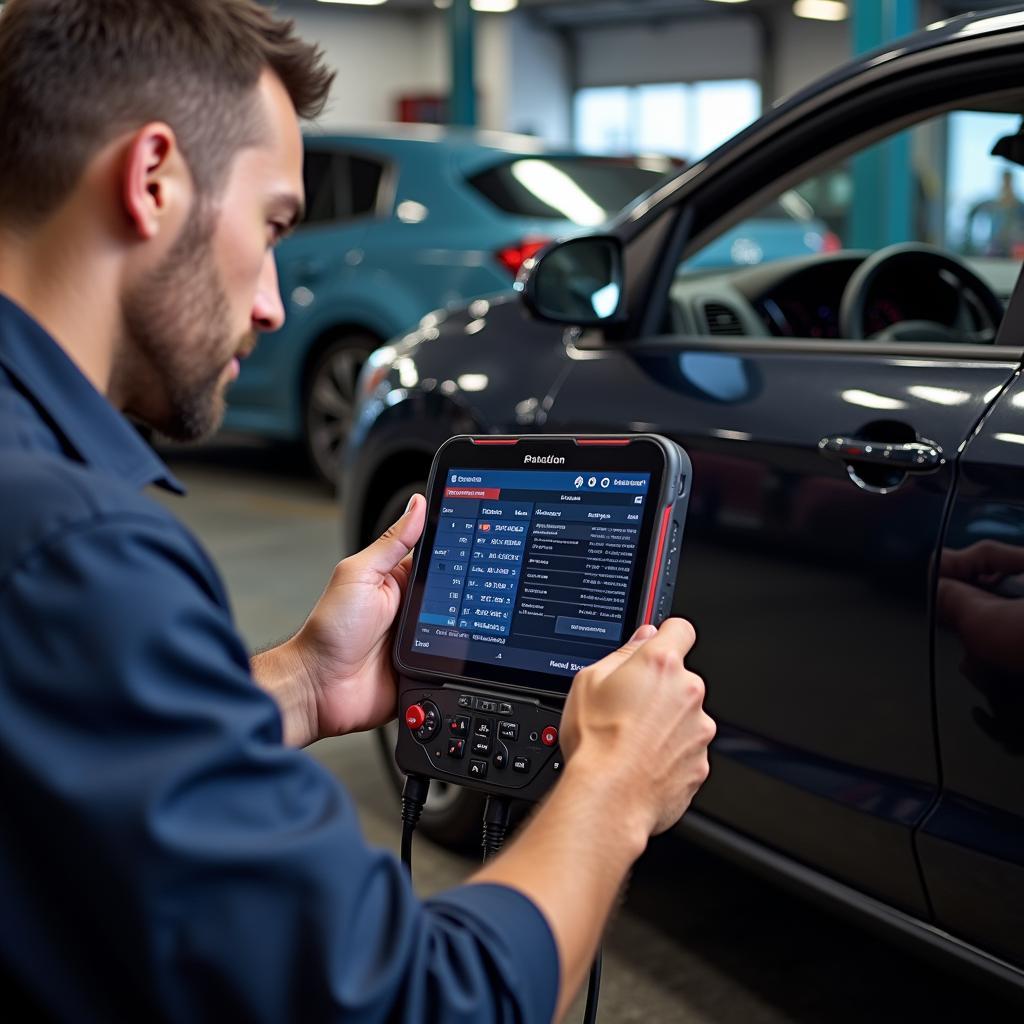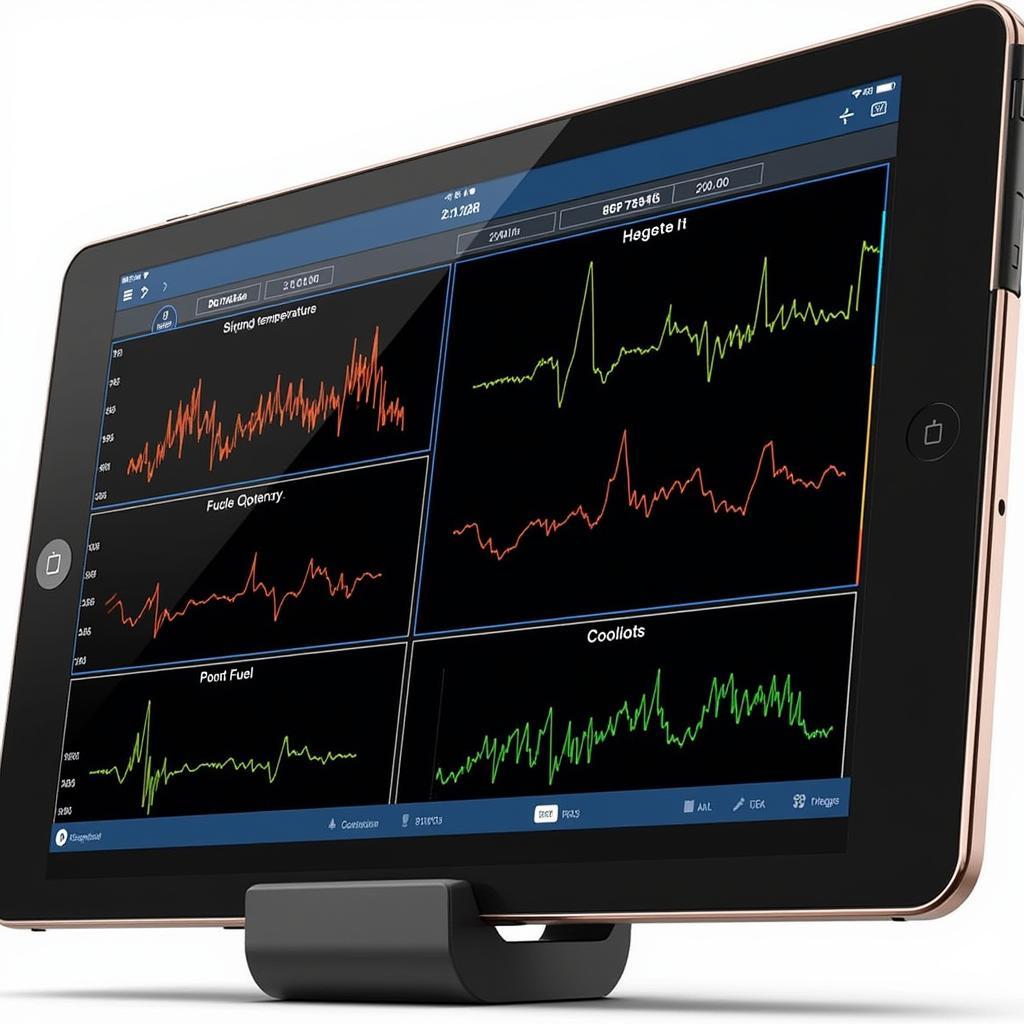The smooth operation of a modern vehicle relies heavily on a myriad of electronic systems, with hard drives playing an increasingly vital role. From engine control units to infotainment systems, hard drives store and process vast amounts of data. When these drives malfunction, it can lead to a range of issues, from sluggish performance to complete system failure. This is where the crucial role of Hard Disk Diagnostic Tools comes into play, empowering mechanics and car owners alike to identify and resolve problems effectively.
What Are Hard Disk Diagnostic Tools and Why Are They Essential?
Imagine this: your car suddenly refuses to start, the dashboard lights up like a Christmas tree, or your GPS sends you on a wild goose chase. These are just a few examples of the headaches that can arise from faulty hard drives in your vehicle. Hard disk diagnostic tools are specialized software or hardware designed to delve into the intricacies of these drives, pinpoint the root cause of the problem, and guide you towards a solution.
Types of Hard Disk Diagnostic Tools
The automotive world offers a diverse range of hard disk diagnostic tools, each tailored to specific needs and levels of expertise. Let’s explore some of the most common types:
1. Software-Based Diagnostic Tools
These tools, often available as downloadable applications or online services, provide a user-friendly interface for scanning and analyzing hard drive data. They are an excellent option for car owners and DIY enthusiasts looking to troubleshoot basic issues.
Key Features:
- User-friendly interface for ease of use
- Detection of bad sectors, file system errors, and other common issues
- Basic repair functionalities in some cases
2. Hardware-Based Diagnostic Tools
For more advanced diagnostics and repair capabilities, hardware-based tools are the go-to solution. These tools, often used by professional mechanics, connect directly to the hard drive, providing in-depth analysis and data recovery options.
Key Features:
- Comprehensive hard drive testing and analysis
- Data recovery from damaged or corrupted drives
- Advanced repair functionalities
[image-1|hard-disk-diagnostic-tool-connection|Connecting a Hard Disk Diagnostic Tool|A close-up image of a hard disk diagnostic tool being connected to a car’s OBD-II port, showcasing the intricate connection process.]
Choosing the Right Diagnostic Tool for Your Needs
Selecting the most suitable hard disk diagnostic tool depends on your specific requirements and technical proficiency.
Consider these factors:
- Level of expertise: Software-based tools are ideal for beginners, while hardware-based tools cater to professionals.
- Diagnostic depth: Hardware tools offer more comprehensive analysis and repair options.
- Budget: Software tools are generally more affordable than hardware counterparts.
Benefits of Using Hard Disk Diagnostic Tools
Investing in the right hard disk diagnostic tool can save you time, money, and frustration in the long run. Here’s how:
- Early detection and prevention: Identifying issues early can prevent minor problems from escalating into major headaches.
- Accurate diagnosis: Pinpoint the exact cause of the problem, avoiding unnecessary guesswork and repairs.
- Cost savings: Avoid expensive repairs by addressing issues promptly or performing DIY fixes.
- Enhanced vehicle performance: Ensure the smooth and efficient operation of your car’s electronic systems.
“Using the right hard disk diagnostic tools is like having an X-ray vision for your car’s electronic brain,” says John Smith, a seasoned automotive electrician with over 20 years of experience. “It allows you to see what’s really going on and make informed decisions about repairs.”
[image-2|mechanic-using-diagnostic-tool|Mechanic Analyzing Hard Drive Data|A skilled mechanic using a sophisticated hard disk diagnostic tool to analyze hard drive data, their focused expression highlighting the importance of the task.]
Common Issues Detected by Hard Disk Diagnostic Tools
Hard disk diagnostic tools can uncover a wide range of problems, including:
- Bad sectors: Damaged areas on the hard drive that can lead to data loss and system instability.
- File system errors: Corruption in the way data is organized on the drive, causing read/write issues.
- Virus or malware infections: Malicious software can wreak havoc on hard drives, leading to data loss and system malfunctions.
- Hardware failures: Physical damage to the hard drive itself, requiring replacement.
Maximizing the Effectiveness of Your Diagnostic Tools
To get the most out of your hard disk diagnostic tools, consider these tips:
- Regular scans: Perform periodic scans to detect and address potential issues before they escalate.
- Back up your data: Always back up important data to prevent loss in case of hard drive failure.
- Keep your software updated: Ensure you are using the latest version of your diagnostic software for optimal performance.
- Consult a professional when needed: If you encounter complex issues or are unsure about performing repairs yourself, don’t hesitate to seek help from a qualified mechanic.
Conclusion
In the ever-evolving landscape of automotive technology, hard disk diagnostic tools have become indispensable assets for car owners and mechanics alike. By understanding the types of tools available, their benefits, and how to use them effectively, you can ensure the smooth, reliable, and safe operation of your vehicle’s electronic systems. Remember, a stitch in time saves nine, and proactive diagnostics can save you from major headaches down the road.
Need assistance choosing the right hard disk diagnostic tool or troubleshooting a tricky issue? Contact the experts at ScanToolUS at +1 (641) 206-8880 or visit our office at 1615 S Laramie Ave, Cicero, IL 60804, USA.
FAQs about Hard Disk Diagnostic Tools
- Can I use a hard disk diagnostic tool designed for computers on my car’s hard drive?
While some functionalities might overlap, it’s generally not recommended to use computer-specific tools on car hard drives. Automotive hard drives have unique architectures and protocols that require specialized tools for accurate diagnosis.
- How often should I scan my car’s hard drive for errors?
It’s a good practice to perform a scan every few months or whenever you notice unusual behavior in your car’s electronic systems.
- Can I recover data from a physically damaged hard drive?
Data recovery from physically damaged drives can be challenging and often requires specialized equipment and expertise. Contact a professional data recovery service for assistance.
- Are hard disk diagnostic tools difficult to use?
Many software-based tools are designed with user-friendliness in mind, while hardware-based tools might require some technical knowledge.
- What are some signs that my car’s hard drive might be failing?
Common signs include slow system performance, frequent error messages, unusual noises from the hard drive, and unexplained system crashes.



